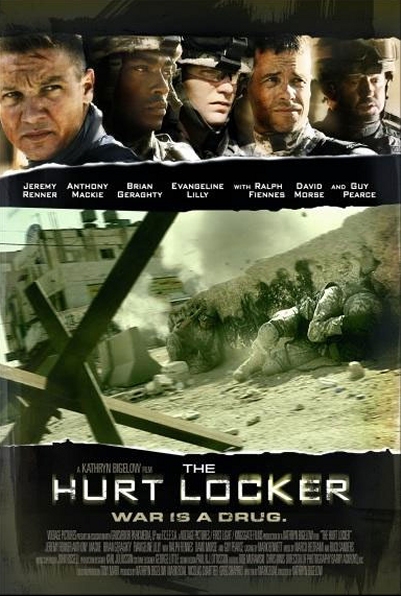Precious: Based on the Novel Push by Sapphire
Posted on March 12, 2010 at 3:57 pm
Claireece (newcomer Gabourey ‘Gabby’ Sidibe) is a 16-year-old, still in middle school, illiterate, pregnant with her second child. The first baby has Down Syndrome. Both pregnancies are the result of rape by her own father. She is subjected to constant physical, emotional, and sexual abuse and has retreated so far inside herself that she barely exists in the world. And in a cruel parody of tenderness, she is called by her middle name, “Precious.” In a cruel demonstration of the constrictions of her world, Precious knew no other name to give her Down Syndrome child than “Mongo.”
Inside 350 pounds of weight, a moat of flesh, her wall against the world, Precious hides as far from everyone as she can go. She has little wisps of dreams cobbled together from television, a light-skinned boyfriend, a stroll down a red carpet, surrounded by cameras and adoring fans. But she is so limited in experience and opportunity that she literally cannot imagine a genuine alternative to what she has. She does not even know what the word “alternative” means. When the middle school principal arranges for her to attend a special “each one teach one” alternative school, someone has to explain to her what an alternative is. It is, a distracted administrator tells her, “a different way of doing.” And it is that recognition, more than the program itself, just the realization that there are different ways of doing, that leads her to understand that there may be choices available to her.
Seeing Precious understand for the first time that she is worthy of love and capable of learning is the expected pleasure of this movie. But it is also the challenge of the film. Even slightly toned down from the novel, by poet and teacher Sapphire, the abuse is so relentless, so outrageous, even beyond the usual struggles we see in fiction and on the talk shows and tabloid covers.
They thrive on exploitative confessions, a secularized testimony that tries to disinfect the prurient pleasures of wallowing in degradation and tragedy with the superficial pieties of simplistic redemption. The post-production sign-on of Oprah Winfrey and Tyler Perry as producers, both survivors of abuse and highly successful purveyors of abuse melodrama, is a sign to be wary. And even with a sensitive performance by Sidibe, this film would risk falling into that trap of easy sentimentality. That it does not is due to one character and one actress, comedienne Mo’Nique in her Oscar-winning, fearless portrayal of the mother, a monster named, with grim irony, Mary.
Two key scenes in the film focus on Mary’s interactions with social workers. In the first, like a theatrical director, she barks out orders to set the stage for a visit, casting herself in the role of a loving grandmother, to persuade the social worker that she is doing everything necessary to qualify for welfare payments for her extended family. Where moments before she seemed completely out of control, wavering back and forth between stupor and rage, when she has to pull it together, she does, slapping on a wig and cuddling the baby. The instant the door shuts, the monster returns.
And then, near the end, in another meeting with another social worker (beautifully underplayed by pop diva Mariah Carey), Mary starts to talk and for the first time we see her as the victim as well as the inflicter of damage. In a monologue she seems to forget where she is and who she wants to appear to be and opens herself up in a moment so raw, so naked, so vulnerable that it takes the entire film to a different level.
Director Lee Daniels, like his producers Winfrey and Perry, brings a sincerity to telling these stories that tempers the potential for exploitation. He has a sure, if unconventional, eye for casting. In addition to Mo’Nique and Carey, he gets small jewels of performances from talk-show and sit-com star Sherry Shepherd as the alternative school administrator and musician Lenny Kravitz as a sympathetic nurse. The lovely Paula Patton brings understated grace to the role of the alternative teacher, and the assortment of young performers who play the classmates at Each One Teach One manage to avoid the “Welcome Back Kotter” syndrome and evoke full characters. But Mo’Nique’s fierce and fearless performance as Mary holds the story together and takes it to another level. She does not let us hate her because she does not let us compartmentalize her. By opening herself up on screen, she forces us to look into the source of her damaged heart. And that moment, more than any other, shows us what Precious has had to overcome.



